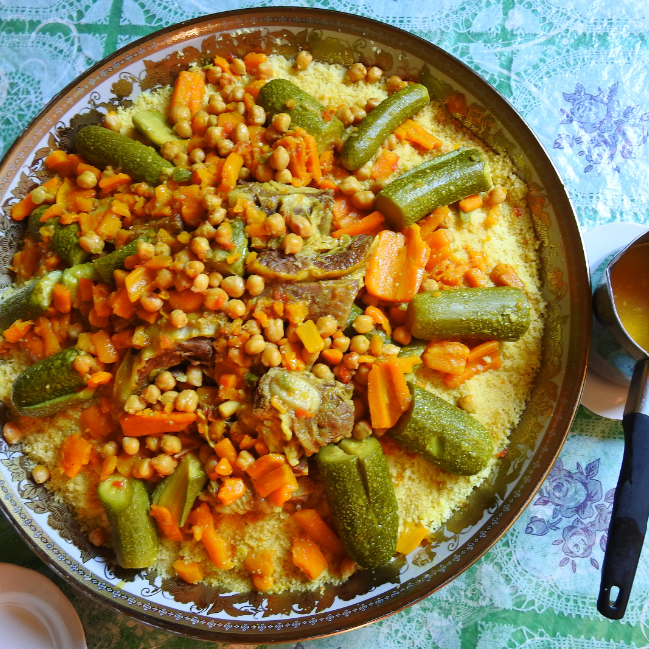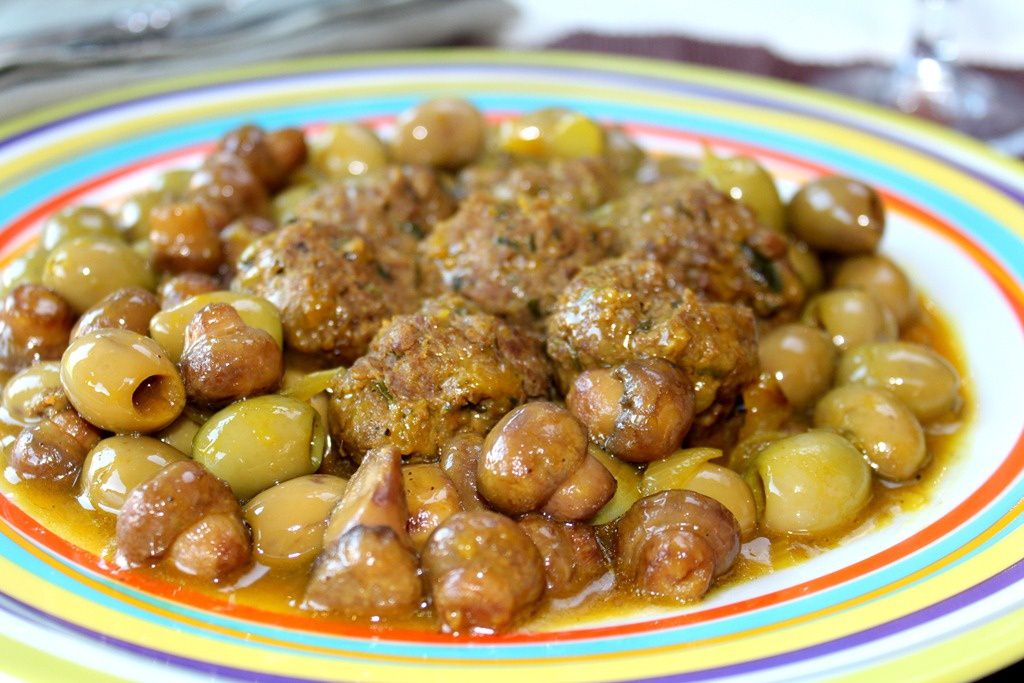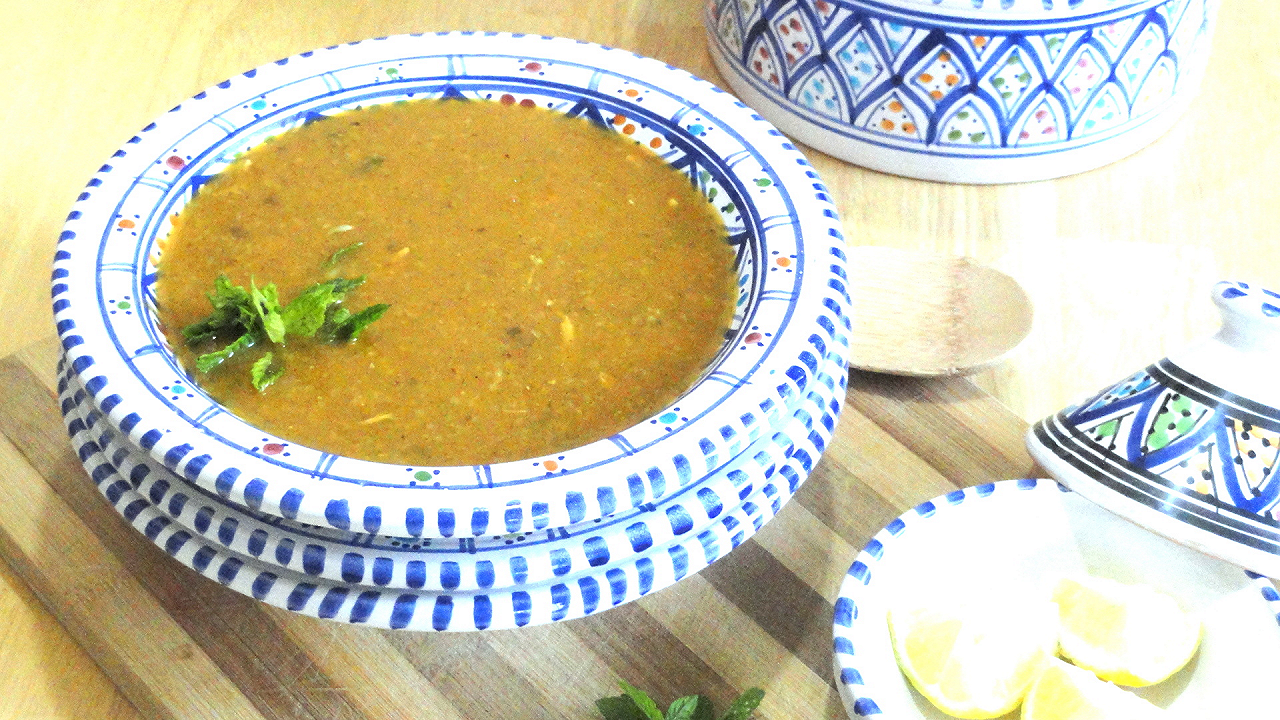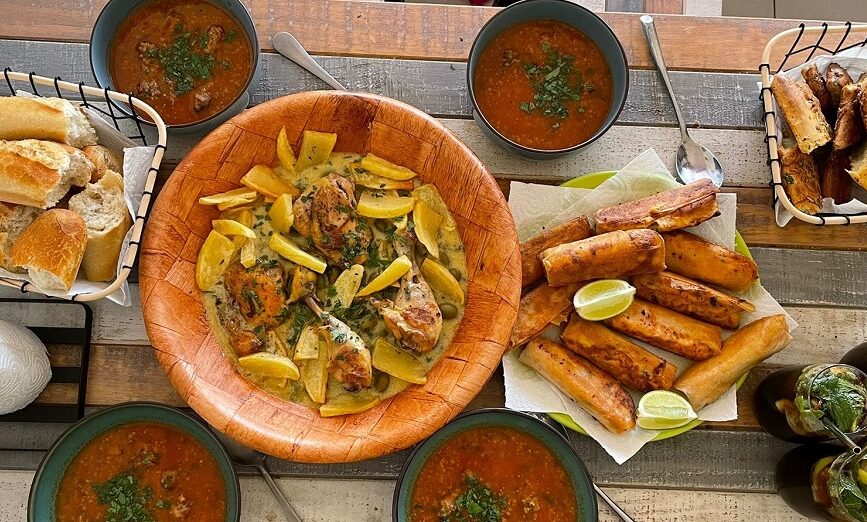Algerian cuisine is a rich and flavorful blend of African, Arabic, and French influences. From the aromatic spices and hearty grains of the African continent, to the fresh seafood and rich sauces of the Mediterranean, Algerian dishes offers a wide range of delicious flavors and textures. Some of the most popular dishes in Algerian gastronomy include couscous, tajine, and harira, all of which feature a variety of ingredients such as olives, dates, and aromatic spices. Whether you’re a seasoned foodie or simply looking to try something new, Algerian cuisine is sure to satisfy your taste buds and transport you to the vibrant and diverse culture of this fascinating North African nation. So, join us as we explore the rich and varied world of Algerian cuisine.
History of Algerian Cuisine
The history of Algerian food is a rich and complex tapestry, reflecting the many cultural influences that have shaped this North African nation. From the hearty grains and aromatic spices of the African continent, to the fresh seafood and rich sauces of the Mediterranean, Algerian cuisine is a unique blend of flavors and traditions.
One of the most significant influences on Algerian cuisine is its African heritage. The country’s location on the north coast of Africa has long made it a crossroads for trade and cultural exchange, and this is reflected in the variety of ingredients and flavors used in Algerian cooking. Grains such as couscous and bulgur wheat, as well as a variety of vegetables and fruits, have long been staples of Algerian cooking.
Another important influence on Algerian cuisine is its Arab heritage. The Arab conquest of Algeria in the 7th century introduced a range of new ingredients and cooking techniques to the region, including the use of aromatic spices such as cumin, coriander, and paprika, as well as the use of meats such as lamb and chicken. The Arab influence is also evident in the popularity of dishes such as tajine and harira, which are slow-cooked in earthenware pots and flavored with a variety of spices and herbs.
Finally, the French colonization of Algeria in the 19th century had a significant impact on the country’s cuisine, introducing a range of new ingredients and cooking techniques, as well as the use of dairy products such as cheese and butter. The French influence can be seen in the popularity of dishes such as couscous, which is made with semolina wheat and served with a variety of meats and vegetables, as well as in the widespread use of bread and pastries.
In summary, the history of Algerian gastronomy is a reflection of the many cultural influences that have shaped this country, from its African and Arab roots to its more recent French influences. This rich and varied history is reflected in the diverse range of ingredients and flavors that make up Algerian cuisine, making it a truly unique and delicious culinary experience.
Popular Dishes in Algerian Gastronomy
Algerian cuisine offers a wide range of delicious dishes that are popular both within the country and around the world. Here are some of the most popular dishes in Algerian cuisine, along with a brief description of their ingredients and flavors:

Couscous
Couscous is a traditional Algerian dish made with semolina wheat, which is steamed and then served with a variety of meats and vegetables. It is typically flavored with a variety of spices and herbs, such as cumin, coriander, and paprika, and is often served with a rich, flavorful broth.

Tajine
Tajine is a slow-cooked stew that is typically made with a variety of meats, such as lamb or chicken, and a variety of vegetables. It is cooked in an earthenware pot and flavored with a range of aromatic spices and herbs, such as cumin, coriander, and parsley. Tajine is often served with couscous or bread.

Harira
Harira is a traditional Algerian soup made with a variety of ingredients, such as lentils, chickpeas, and a variety of vegetables. It is typically flavored with a range of aromatic spices and herbs, such as cumin, coriander, and parsley, and is often served with a side of couscous or bread.
In addition to these dishes, Algerian food also includes a range of other popular dishes, such as shakshuka, a spicy tomato and egg dish that is often served for breakfast, and chakchouka, a spicy vegetable and egg dish that is often served with bread.
Overall, Algerian cuisine is characterized by its rich and flavorful ingredients and dishes, which are often served with couscous or bread and accompanied by a variety of vegetables and meats. Whether you’re a fan of spicy flavors or prefer more subtle, aromatic dishes, there is something for everyone in Algerian cooking.
Traditional Ingredients in Algerian Food
Algerian cuisine is known for its rich and flavorful ingredients, which are used to create a wide range of delicious dishes. Some of the most common ingredients in Algerian cooking include:
Grains: Grains such as couscous, bulgur wheat, and semolina are commonly used in Algerian dishes and are often served as the base for a variety of dishes. These grains are typically steamed and flavored with a variety of spices and herbs, such as cumin, coriander, and paprika.
Vegetables: A wide range of vegetables are used in Algerian cuisine, including tomatoes, onions, peppers, and eggplants. These vegetables are often used in dishes such as tajine, harira, and shakshuka, and are typically flavored with a variety of spices and herbs.
Fruits: Fruits such as olives, dates, and figs are commonly used in Algerian cuisine and are often used to add flavor and texture to a variety of dishes. These fruits are also used to make a variety of condiments and spreads, such as olive tapenade and date paste.
Spices and herbs: A wide range of aromatic spices and herbs are used in Algerian cuisine, including cumin, coriander, paprika, and parsley. These spices and herbs are used to add flavor and depth to a variety of dishes, and are often combined to create complex and flavorful seasoning blends.
Overall, the ingredients used in Algerian cuisine are rich, flavorful, and diverse, and are used to create a wide range of delicious and satisfying dishes. Whether you’re a fan of spicy flavors or prefer more subtle, aromatic ingredients, there is something for everyone in Algerian cuisine.
Algerian Cuisine Today
Today, Algerian cuisine is enjoyed by people all over the world and is known for its rich and flavorful ingredients and dishes. In Algeria, traditional cooking techniques and ingredients are still widely used and are an important part of the country’s cultural identity.
One of the key features of Algerian cuisine today is its popularity and influence on international cuisine. Many dishes and ingredients from Algeria, such as couscous and tajine, have become popular around the world and are enjoyed by people of all cultures. In addition, the use of aromatic spices and herbs, such as cumin and coriander, has become more widespread in international cuisine, thanks in part to the influence of Algerian cuisine.
In contemporary Algerian culture, cuisine plays an important role in social and cultural life. Traditional dishes are often prepared for special occasions and celebrations, and food is an important part of the country’s social fabric. In addition, the use of traditional cooking techniques and ingredients is often seen as a way of preserving the country’s cultural heritage and passing it down to future generations.
Overall, Algerian cuisine is an important and vibrant part of contemporary Algerian culture and society, and its popularity and influence on international cuisine is a testament to its rich and flavorful ingredients and dishes. Whether you’re a fan of spicy flavors or prefer more subtle, aromatic dishes, there is something for everyone in Algerian cuisine.
Conclusion
In conclusion, Algerian cuisine is a rich and flavorful blend of African, Arabic, and French influences, offering a wide range of delicious dishes and ingredients. From the aromatic spices and hearty grains of the African continent, to the fresh seafood and rich sauces of the Mediterranean, Algerian cuisine is a unique and delicious culinary experience.
Throughout this article, we have explored the history of Algerian cuisine, the popular dishes and ingredients that make it so delicious, and the role it plays in contemporary Algerian culture and society. Whether you’re a seasoned foodie or simply looking to try something new, Algerian cuisine is sure to satisfy your taste buds and transport you to the vibrant and diverse culture of this fascinating North African nation.
So, if you’re looking to explore the rich and flavorful world of Algerian cuisine, we encourage you to give some of these dishes a try. Whether you’re cooking at home or seeking out Algerian restaurants in your area, we hope you’ll discover the diversity of flavors and traditions that make Algerian cuisine so unique and delicious.
Other Articles
Maha Ammouche : Founder of the Algerian Beauty tech innovation IZYA
Maha Ammouche Founder of the Algerian Beauty tech innovation IZYA I am ...
Douaa Berkani : From Medicine to Writing and Jewelry Making
Douaa Berkani From Medicine to Writing and Jewelry Making, a Journey ...
Rai Music of Algeria on UNESCO’s List of Intangible Cultural Heritage
A few weeks ago, Unesco announced that the Algerian popular ...



